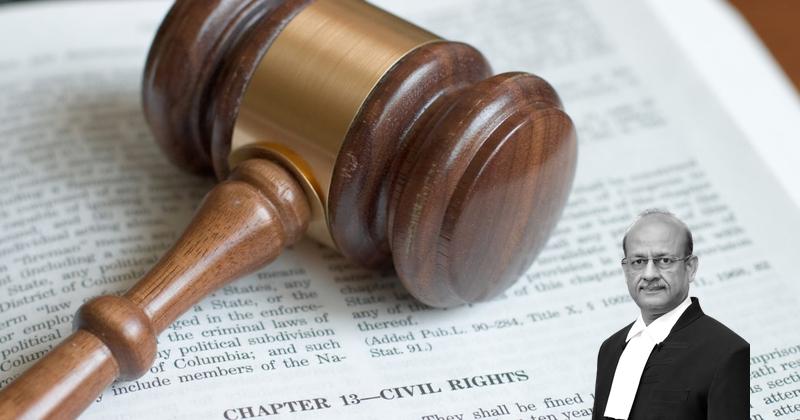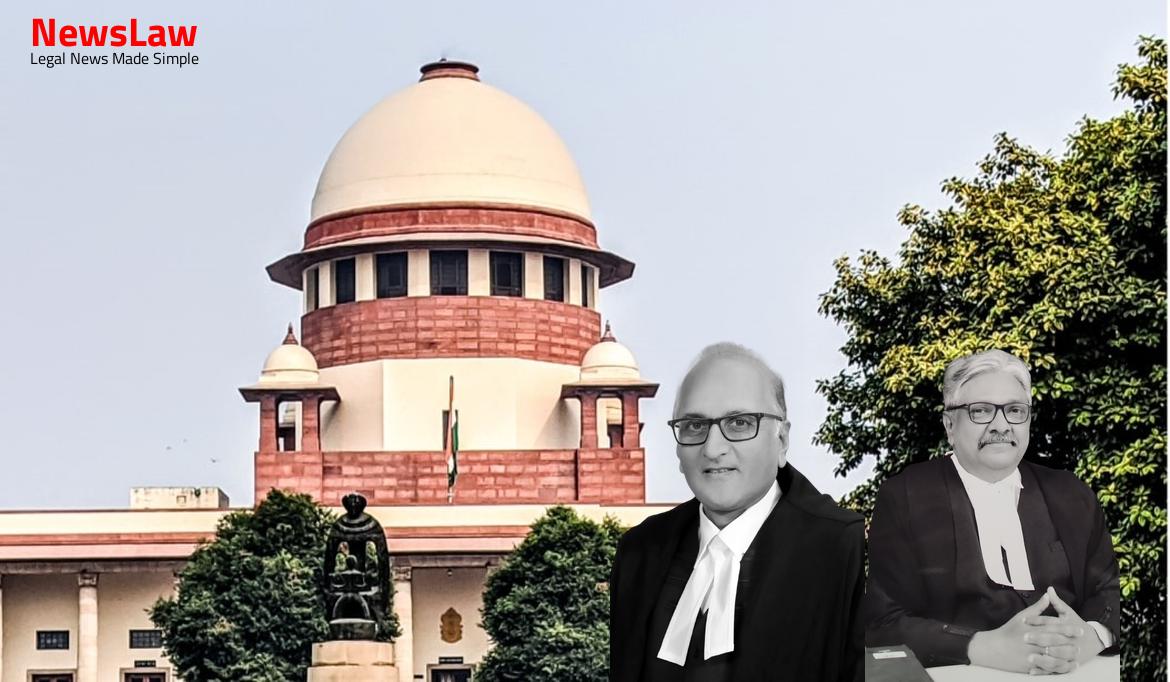We must, however, record here that the landlord’s claim of the rent being further increased up to Rs.300/- per month was denied by the tenant though the Trial Court and the Revisional Court have given their findings on the enhanced rent, in favour of the landlord. A notice was given by the landlord on 05.04.1995, admittedly received by the tenant/appellant on 10.04.1995, where the landlord demanded rent from May, 1993 onwards.
Also Read: https://newslaw.in/supreme-court/standing-orders-vs-cca-rules-a-legal-analysis/
In the plaint it was alleged by the landlord that though earlier the monthly rent of the shop was Rs.250/- per month but later through an oral settlement in the year 1993, it was agreed between the parties that there shall be an increase of Rs.25/- per month every year and therefore it became Rs.275/- per month from 01.05.1993 onwards and Rs.300/- per month from 01.05.1994 onwards etc., and thus, the tenant- appellant was in default of rent.
Moreover, even when this rent is not paid and the landlord files his suit for eviction, the law provides yet another opportunity to the tenant to unburden this liability, which is by payments of the entire rent and arrears, before the first hearing of the suit. In any suit for eviction on the ground mentioned in clause (a) of sub- section (2), if at the first hearing of the suit the tenant unconditionally pays or [tenders to the landlord or deposits in court] the entire amount of rent and damages for use and occupation of the building due from him (such damages for use and occupation being calculated at the same rate as rent) together with interest thereon at the rate of nine per cent per annum and the landlord’s cost of the suit in respect thereof, after deducting therefrom any amount already deposited by the tenant under sub- section (1) of Section 30, the Court may, in lieu of passing a decree for eviction on the ground, pass an order relieving the tenant against his liability for eviction on the ground: Provided that nothing in this sub- section, shall apply in relation to a tenant or any member of the whose family has built or has otherwise acquired in a vacant state, or has got vacated after acquisition, any residential building in the same city, municipality, notified area or town area. Deposit of rent in Court in certain circumstances.- (1) If any person claiming to be a tenant of a building tenders any amount as rent in respect of the building to its alleged landlord and the alleged landlord refuses to accept the same then the former may deposit such amount in the prescribed manner and continue to deposit any rent which he alleges to be due for the any subsequent period in respect of such building until the landlord in the meantime signifies by notice in writing to the tenant his willingness to accept it.
(5) On a deposit being made under sub-section (2), the Court shall cause notice of the deposit to be served on the person or persons concerned and hold the amount of the deposit for the benefit of the person who may be found entitled to it by any competent Court or by a settlement between the parties and the same shall be payable to such person.
The case of the landlord is that after the notice dated 05.04.1995 was served on the tenant (on 10.05.1995), and he refused to pay the rent within the stipulated period of one month, his tenancy stood terminated and he had therefore filed a suit for eviction before the Judge, Small Causes Court, Saharanpur for his the eviction. The Judge, Small Cause Court gave a finding that the tenant was in arrears of rent, holding that the rent was Rs.300/- per month and not Rs.250/- per month which admittedly has never been deposited anywhere, and consequently a decree of eviction and recovery of rent was passed against the tenant. The High Court dealt with this aspect and held that once the notice of demand was sent to the tenant by the landlord on 05.04.1995 (received by the appellant on 10.04.1995), demanding a rent at the enhanced rate, then the tenant had no option but to deposit the rent before the landlord, as against depositing it in the Court.
This was not done and the defence of the tenant that he continued to deposit the “admitted rent” in the Court will not come to his rescue as once the landlord had expressed his willingness to accept the rent, which was expressed in his notice of demand dated 05.04.1951 then such a rent was liable to be given to the landlord and not in the Court. One of the questions with which we are presently concerned was: “ In a case where the landlord had earlier been refusing to accept rent at the correct rate and had been claiming rent at higher rate and the tenant had as a consequence of landlords earlier refusal in the past, deposited the rent in Court under Section 30 and thereafter, landlord serves a formal notice of demand again at a higher rate, whether the tenant without tendering rent at the correct rate to the landlord has a right straight away to deposit the same under Section 30 (1).” After discussing the entire law on the subject, the conclusion derived by the Full Bench to this question is as follows: 37.
In the case cited above, the tenant was given the benefit of sub-section (4) of Section 20 of the Act, as he had deposited the “admitted rent” before the first date of hearing.
The question before the Court was whether in order to get the benefit of sub-section (4) of Section 20 the tenant was liable to deposit the enhanced rate of rent as claimed by the landlord, or will he be relieved of the liability if he deposits the admitted rent.
Also Read: https://newslaw.in/supreme-court/scope-of-judicial-scrutiny-in-referral-to-arbitration/
The learned counsel of the appellant Shri Uniyal, sought to draw a parallel with the said case and would argue that in the present case as well the tenant has been depositing the admitted rent.
Case Title: MAN SINGH Vs. SHAMIM AHMAD (DEAD) THR. LRS. (2023 INSC 323)
Case Number: C.A. No.-001874-001874 / 2015



